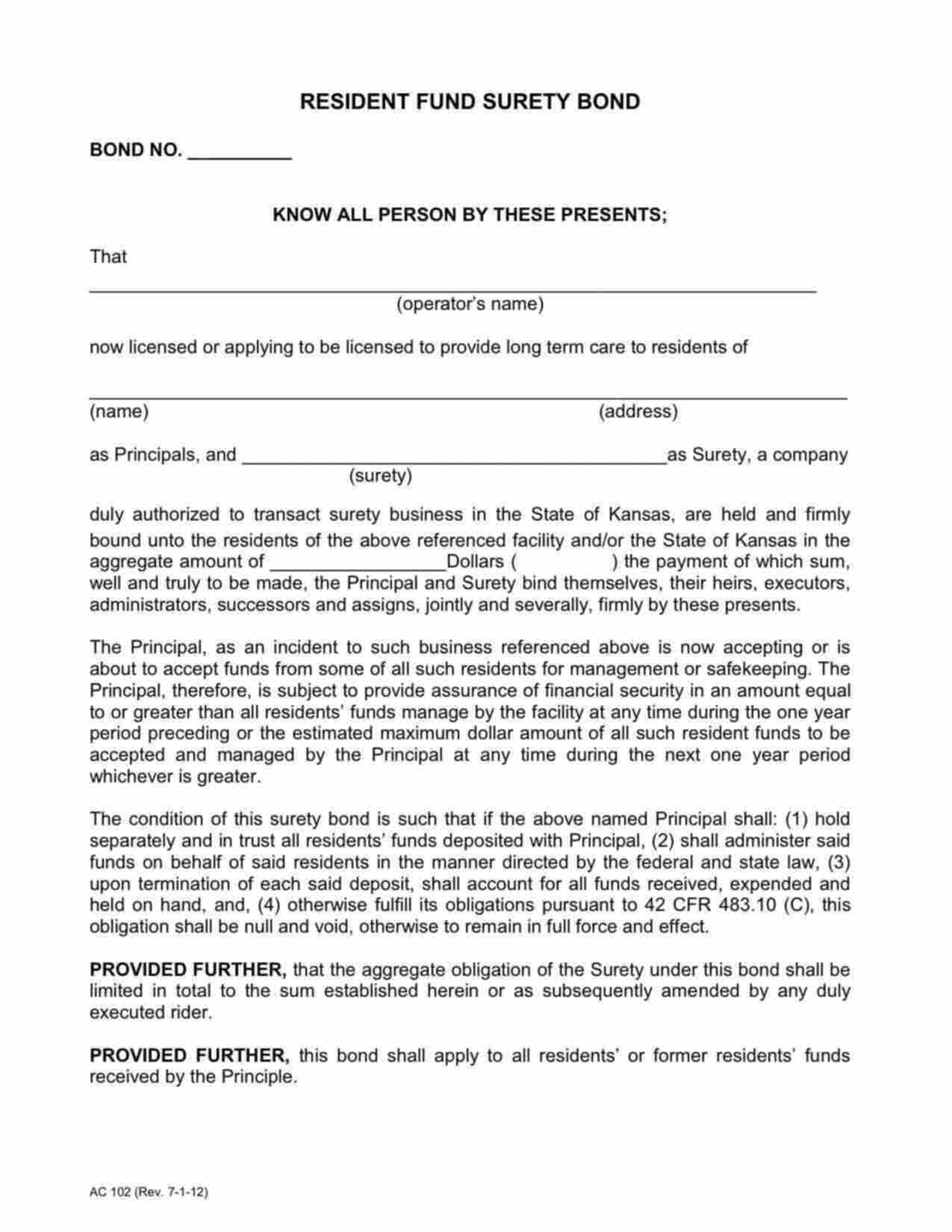Kansas Long Term Care Resident Fund Bond

Obligee Info:
State of Kansas Department on Aging and Disability Services503 S. Kansas Avenue New England Building
Topeka KS 66603-3404
Cancellation Period:
30 days
Limit:
$0 - $999,999
Credit Check Required?
Yes
Businesses are required to file a bond with the (the "Obligee") to activate their license. The bond protects the Obligee by transferring to a surety bond company the cost of ensuring the public is compensated for damages resulting from a licensed business breaking licensing laws.
How much does the Kansas Long Term Care Resident Fund bond cost?
Kansas Long Term Care Resident Fund bonds typically cost between $375 - $3,500.
Is a Credit Check Required for Kansas Long Term Care Resident Fund Bonds?
Credit checks are required for the Kansas Long Term Care Resident Fund Bond.
Why is the Kansas Long Term Care Resident Fund bond required?
Businesses are required to purchase and file a bond with the to activate their license. The bond protects the Obligee by transferring to a surety bond company the cost of ensuring the public is compensated for damages resulting from the failure of a licensed business complying with the provisions of licensing laws.
How does the Kansas Long Term Care Resident Fund bond work?
Kansas Long Term Care Resident Fund bonds must be issued by an insurance carrier admitted by the Kansas Department of Insurance. The insurance company issuing any surety bond, such as the Long Term Care Resident Fund bond, will also be referred to as the "surety company" or the "bond company". The business is referred to as the Principal, the surety bond company as the Obligor and the as the Obligee.
The surety company provides the Obligee a guarantee (the surety bond) that the customers, vendors and employees of a licensed business will receive payment for financial damages due to a violation of licensing law up the bond amount stated on the bond form ("penal sum"). The bond company also directly receives claims from the public and determines the validity of claims. Ultimately, the licensed business owners are responsible for their actions and required by law to reimburse the surety company for any payments made under the bond or face indefinite license suspension.